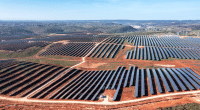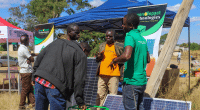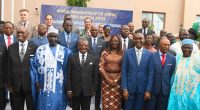The Nigeria Sovereign Investment Authority (NSIA) is launching a joint venture with Vitol to finance sustainable development in Nigeria. The two partners also plan to leverage the voluntary carbon market.
A new initiative is being launched to invest in low-carbon projects across Nigeria. It is a joint venture recently launched by the Nigeria Sovereign Investment Authority (NSIA), Nigeria’s sovereign wealth fund, and Vitol, a crude oil brokerage firm, which is also expanding into the emerging carbon credit market, despite the controversy over this offsetting method.
It must be said that some large polluters, notably oil companies, use it to engage in “greenwashing”, which environmentalists denounce. In any case, Nsia and Vitol intend to rely on carbon credits to finance sustainable development in Nigeria. Initially, the two partners will commit $50 million to the operation of this special vehicle. The goal going forward is to attract additional investors over the next few years.
Financing clean cooking
“The JV will start with projects in Nigeria, partnering with local companies with a proven track record of delivering high-quality projects, combining carbon offsets with social outcomes that contribute to the UN Sustainable Development Goals (SDGs),” says NSIA. Also leveraging the voluntary carbon market, the joint venture will invest in infrastructure, agriculture and energy.
Read also- NIGERIA: NSIA grants 24 M$ to Solar Power Naija electrification programme
On this third point, Nigeria has embarked on a policy to expand its installed power capacity and electrification by focusing on renewable energy, notably hydro and solar. In fact, the largest solar power plant (10 MWp) in this West African country was inaugurated a few months ago in Kano State, despite the delay in its construction, with an investment of $15 million.
The joint venture will begin operations with a household energy efficiency program including “more efficient” clean cooking and water filtration devices. According to a study report published by the Open Africa Power 2021 Fellowship Program, at least 30 million Nigerian households continue to cook on wood fires. This situation accelerates deforestation at an estimated rate of 3.3% per year, according to the African Development Bank (AfDB). Through its program, the joint venture aims to distribute 200,000 eco-friendly stoves in Nigeria.
Jean Marie Takouleu






